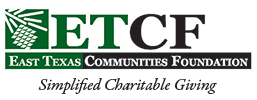As we near another anniversary of our “American Experiment”, I’m reminded of the many freedoms we enjoy as U.S. Citizens contained in the First Amendment to the U.S. Constitution.
You only have to catch a little bit of news to recognize that not everyone around the world shares many of our freedoms. Two such freedoms that are held particularly dear to many Americans are the freedom of assembly and freedom of speech. We have the ability to assemble or join associations with other like-minded individuals to share and express our common interests and express our viewpoints about our government without the threat of our local, state or federal authorities breaking up our gathering.
Whether your interest is flying model airplanes, quilting, making chili, watching sports or debating the issues of the day, we share the freedom to gather together around common interests.
A fundamental expression of our freedom of assembly plays out in the chambers of local school boards, city councils, county commissioner’s courts, and at the home of our state and federal legislatures in Austin and Washington, D.C. Freedom of assembly and freedom of speech protects our ability to approach our governing bodies and elected representatives and share our support or displeasure with their actions.
The thing that makes America unique is the ability to share our displeasure, or what the First Amendment calls “our right to petition the government for the redress of grievances”. Many governments around the world “allow” their citizens to celebrate their greatness, but in America, we also have the freedom to express our grievances.
So what does freedom of assembly have to do with philanthropy? Our federal tax code, written by our elected representatives, provides incentives and deterrents to guide our behavior. Philanthropy is something we generally appreciate and want to encourage as a society, so our tax code provides incentives in the form of tax exemptions, tax deductions and tax credits. Tax exemptions allow organizations to avoid paying taxes because they serve the public good. Tax deductions and tax credits allow individuals and corporations to reduce their taxes because they voluntarily contribute some of their personal and private resources to support the work of tax-exempt charities which serve the public good.
President Trump’s “One, Big Beautiful Bill” is a piece of legislation that is currently being crafted by Congress. The House has passed their initial version of the bill and it includes several items that impact philanthropy in the form of tax exemptions, tax deductions and tax credits. Some of the issues in the House version of the bill include new or increased taxes on tax exempt organizations, a new tax deduction for charitable gifts for individuals who do not itemize, and a new tax credit for gifts to certain scholarship granting organizations.
If you attended or financially support colleges or universities with your philanthropy or tuition dollars, you might want to pay attention to the new and increased taxes some “tax-exempt” colleges and universities will be required to pay with your resources. If you support local charities which receive grants from “tax-exempt” private foundations, you might want to pay attention to new taxes those private foundations may be required to pay, which will necessarily reduce the resources they have available to support local charities. If you are disappointed that you have not been able to take a tax deduction for your charitable giving because of the new higher standard deduction, you might want to pay attention to the new non-itemizer deduction in the bill. If your company supports charities, you might want to read about the new floor proposed for corporate charitable gifts. If you have an opinion about school choice, you might want to review the section that details the new federal tax credit for contributions to tax-exempt K-12 scholarship organizations.
The Senate is working on their version of the bill and it will likely differ from the House bill on many of these issues. Whether you support or oppose the proposed changes in this bill that impact charitable giving, it is up to you to use your freedom to thoughtfully and respectfully express your opinion. Congress needs to hear from you, particularly if you disagree with provisions in either of these bills. They need to know how you or your community may be impacted. Learning more about the “One, Big Beautiful Bill” and sharing your support or opposition to the myriad of provisions in it with your elected officials may be your next best opportunity to Give Well.


Recent Comments